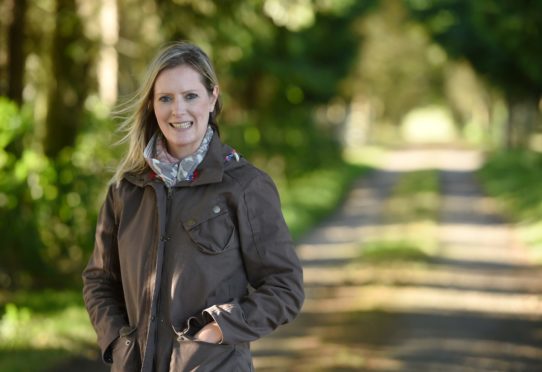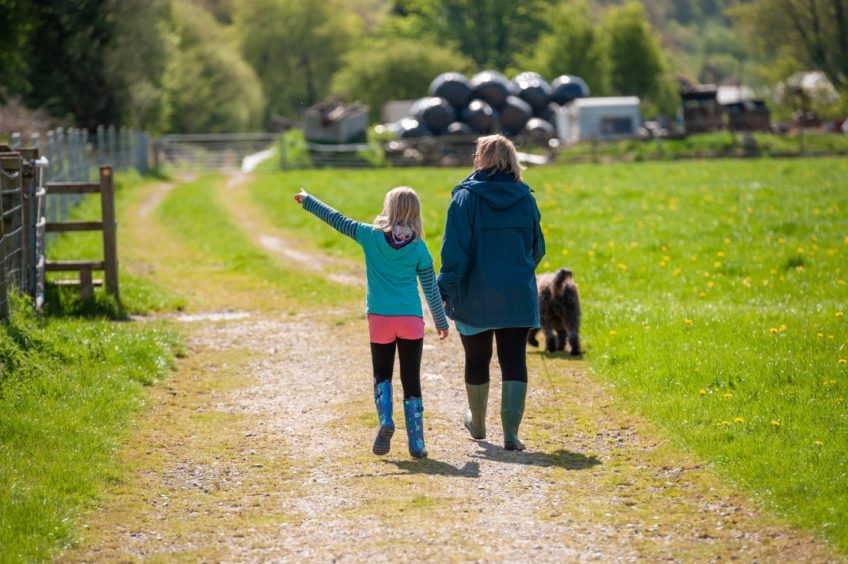According to research by the Mental Health Foundation, more than half of adults in the UK say being close to nature improved their mental health while four in 10 people say that it made them feel less worried and anxious.
This year Mental Health Awareness Week (May 10-16) has focused on the benefits of nature for our mental health and more than that, the relationship we have with nature and the quality and variety of nature we experience.
The theme is proving particularly pertinent during the pandemic – the Foundation’s studies show that “even small contacts with nature can reduce feelings of social isolation” – and one that is intrinsic in farming, especially the idea of connection to nature since farming represents an ongoing relationship with the land and helps create biodiversity and green space in rural areas.
Here on the farm, for instance, the new grazing platform incorporating 25 paddocks grazed by the herd in rotation, is almost complete which will see the cows in their most natural habitat: outside on lush pasture.
I have written before that rather than feeling restricted by the Covid regulations, I have found the staying outdoors rules helpful for my mental and physical health over the past 15 months.
When the decision to have folk inside your home is taken away, it propels you outside and literally gives you space to gain perspective or simply enjoy nature.
Clearly, however, not everyone is able to embrace or access the outdoors as easily as we can, which is another focus of the Mental Health Foundation – making nature accessible to all.
Chief executive Mark Rowland wants to “make it [access to and quality of nature] a mental health and social justice issue as well as an environmental one”.
Another element highlighted in this week’s campaign is the cleanliness of both green and blue spaces such as wetlands and rivers.
The problem of littering exists across the country and has been exacerbated by the nation spending more time outside in nature.
We have certainly seen an increase of rubbish on the verges along the farm drive and around the rural roads where we live during the pandemic; it is so disheartening to see visitors and locals alike disrespecting the beautiful Scottish countryside.
When an email for a Back British Farming campaign to stop fly-tipping arrived in my inbox last week, I eagerly clicked through to sign the online petition which will lobby government to address the issue.
Back on the farm, we are regularly reviewing our environmental impact and are continually delighted and grateful to our loyal customers who buy their milk from us.
Not only are they helping our diversified dairy business to survive but they are helping the planet by using glass bottles.
One customer Nick met a few days ago buys 18 litres a week from the vending machine – a huge saving to the environment on single use plastic.
With the upcoming summer season and the hospitality sector opening back up, we are also in the process of rationalising ice cream flavours.
When creating our brand back in 2013, our mission was to produce an artisan product using high quality ingredients and as much local produce as possible. We want to get back to a core menu of the best flavours we make and add in seasonal flavours when fresh produce is at its best.
Three years ago, for instance, we made a controversial decision not to make strawberry ice cream until fresh Scottish strawberries were in season and locally available.
For me, seasonality in food goes hand in hand with our connection with and the quality of nature.
Visit mentalhealth.org.uk/mhaw for research results and tips on how to connect with nature and sign the fly-tipping petition at campaigns.countrysideonline.co.uk

